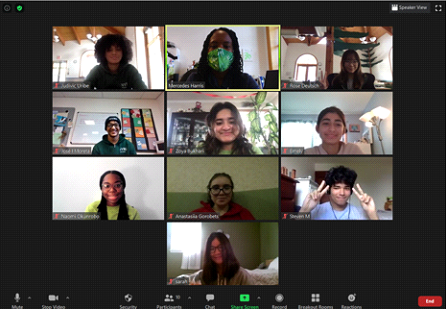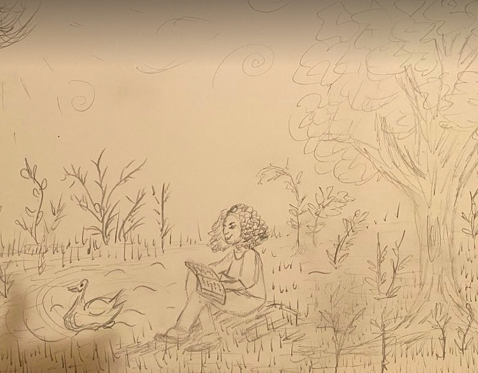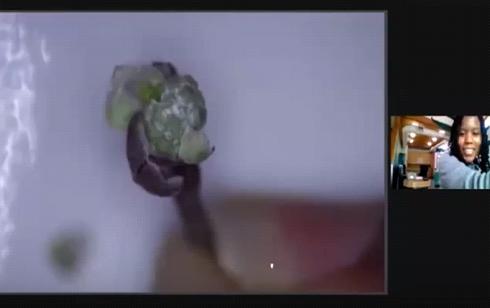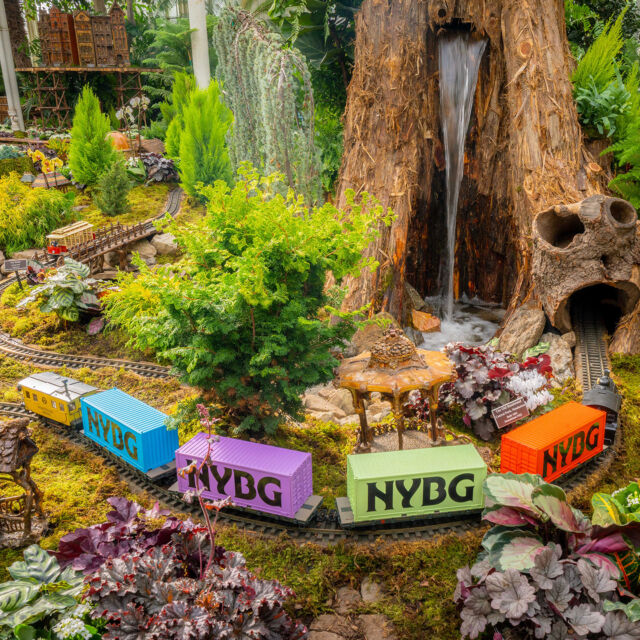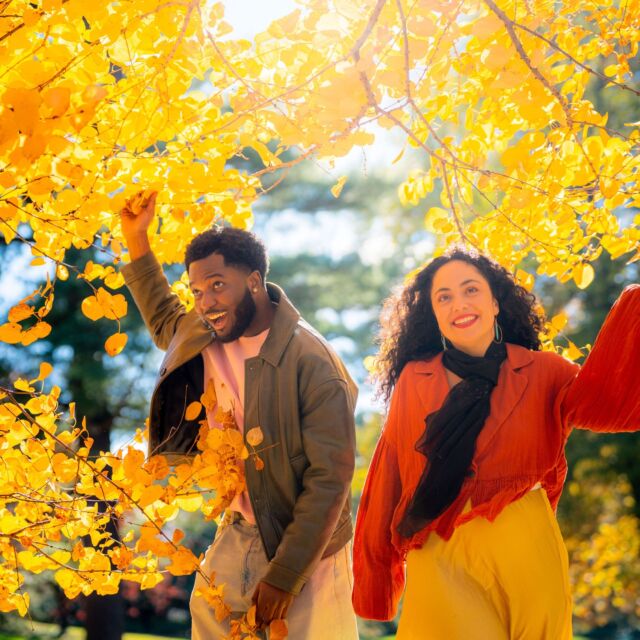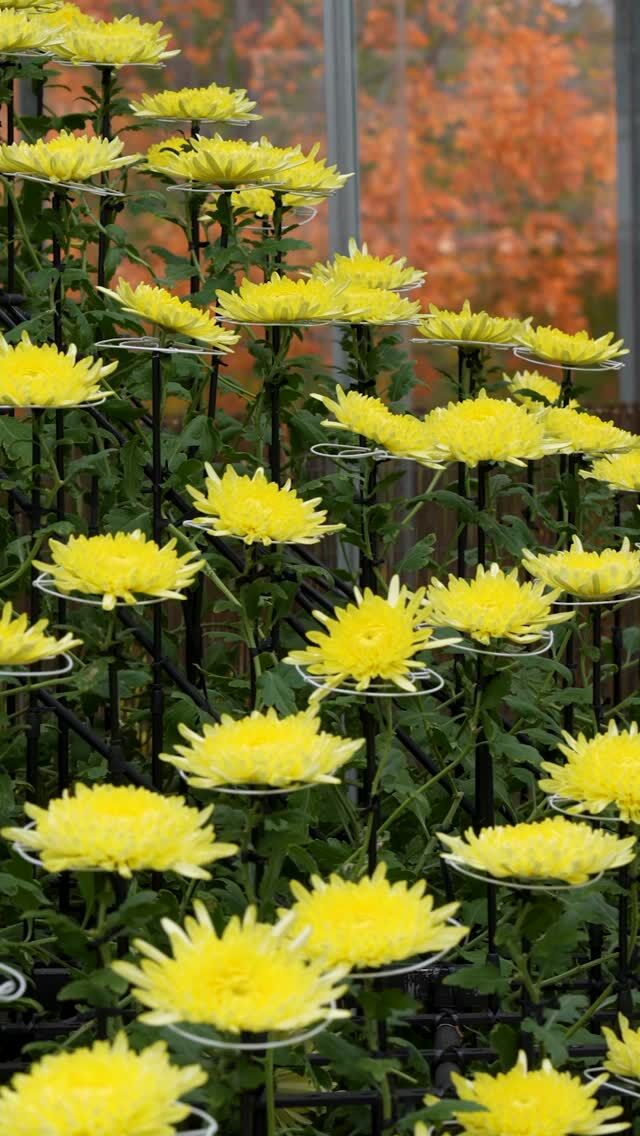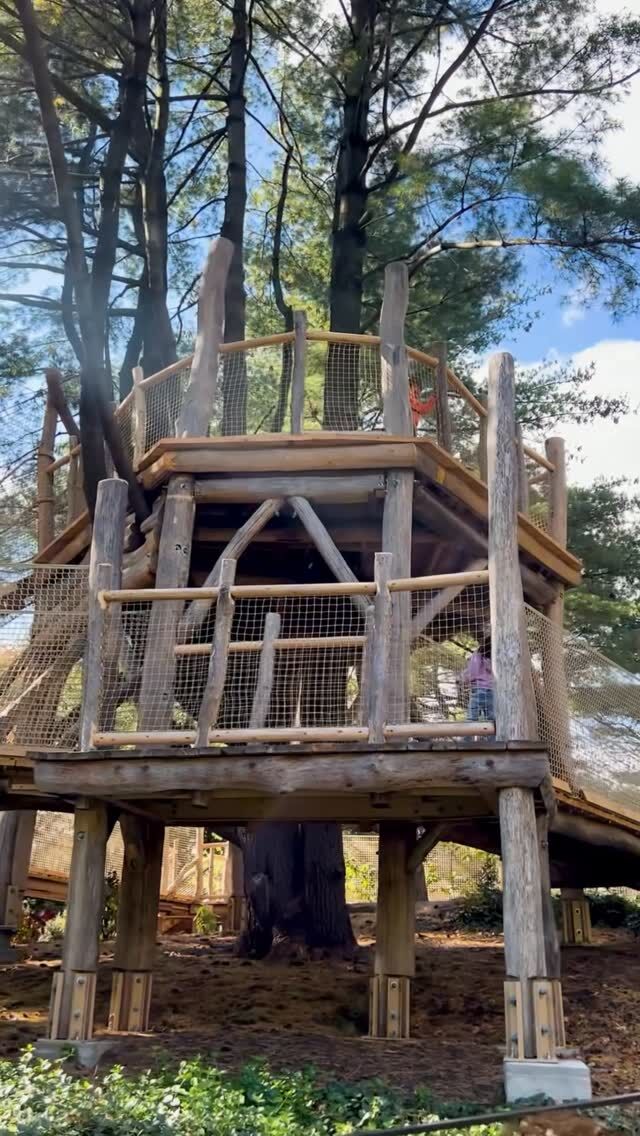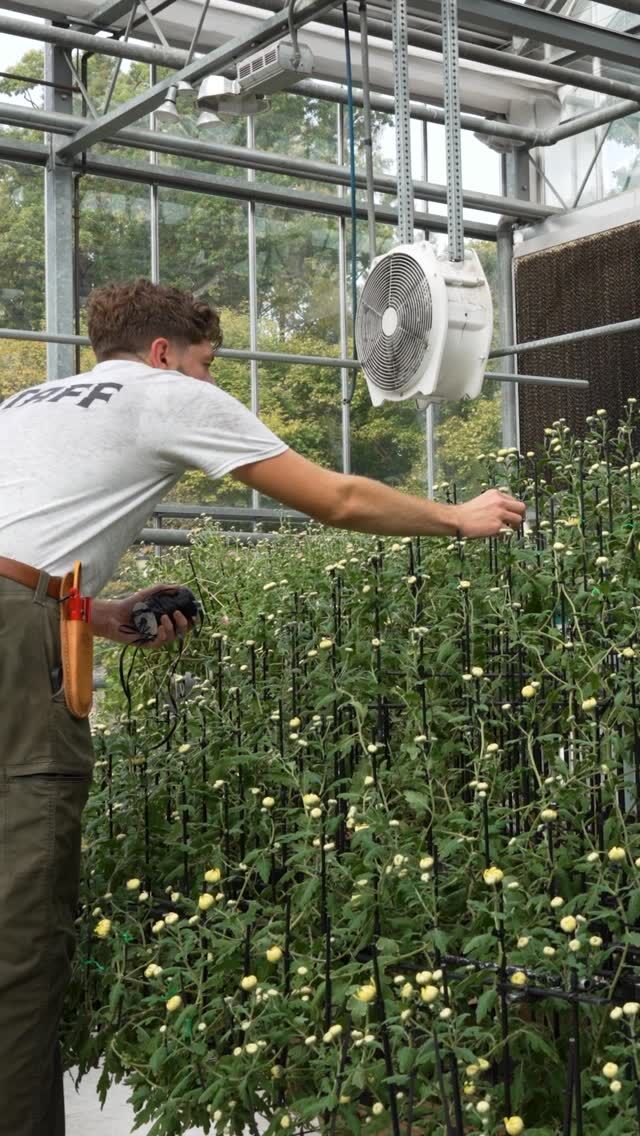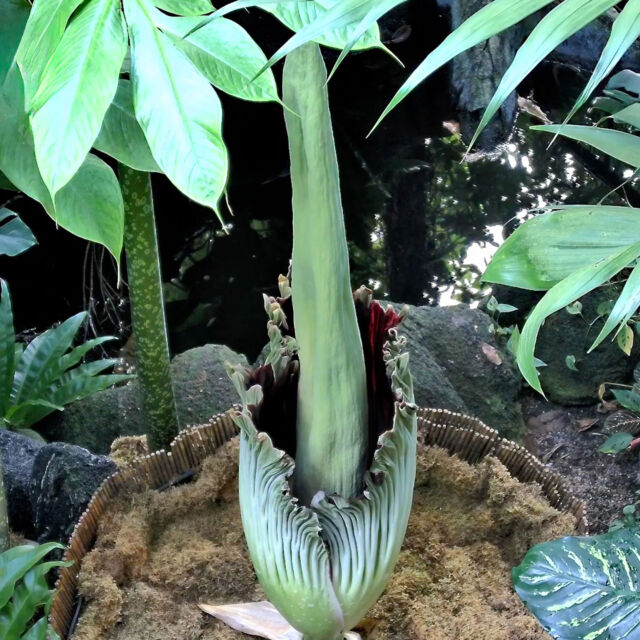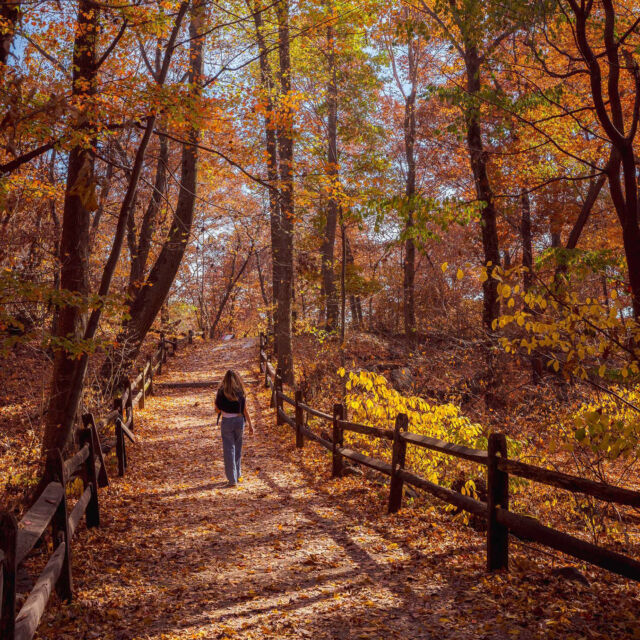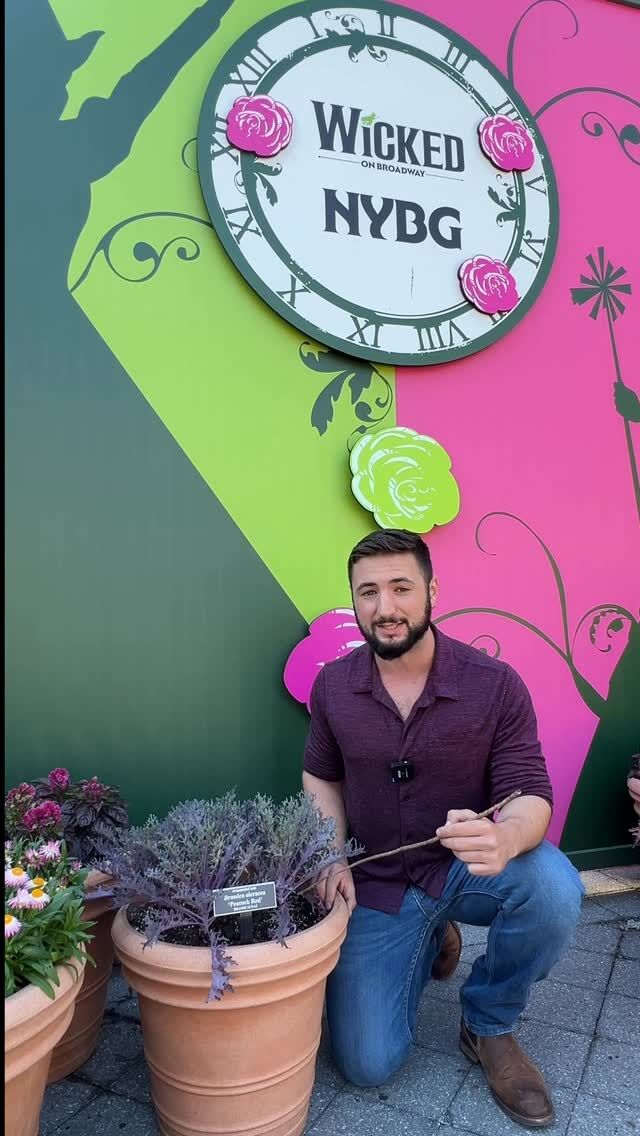Children’s Education Inspiring a Virtual Audience
Christina Edsall is the Urban Advantage Coordinator for Children’s Education at The New York Botanical Garden.
- The Explainers engage in ice breakers and community building via Zoom
- In an independent assignment, teachers draw and reflect on their own relationship with nature.
- Educators from ECAG examine a flower bud under a microscope
“Touch your nose if you can see my screen!” An NYBG educator uses a non-verbal cue for a virtual workshop with middle schoolers as they use Zoom’s “share screen” feature.
After the Garden’s closure in March of 2020 due to the pandemic, staff worked diligently to open the grounds to the public in July when it was safe and compliant to do so. While visitors enjoyed our beautiful 250 acres in person, staff in the Children’s Education department were working to engage a different audience—a virtual one.
Many can attest to the challenges of remote teaching and learning: the impacts of technical glitches, unstable internet connections, and incompatible devices are just a few. However, what many teachers, educators, and caregivers are struggling with is student engagement. Typically, NYBG educators use the five senses as a basis for engagement while on Garden grounds. The nature of remote learning over-stimulates sight and hearing, but how do we engage learners when they can’t smell our evergreens; or touch gardening tools and feel the texture of leaves; or taste-test a culinary creation at the Edible Academy? These challenges have pushed our educators to think creatively about how to engage students in learning experiences that combine the Garden’s resources and provide an immersive experience for learners while in their homes.
Before detailing how Children’s Education has shifted to virtual learning experiences, it is important to acknowledge that the department was able to make such a shift due to the work in finding and maintaining incredibly strong and demonstrably resilient partnerships. Partnerships with NYC Councilmembers’ Bronx District, NYC Department of Education District 75, GEAR UP at the Bronx Institute at Lehman College, and Urban Advantage have all provided the necessary support to Children’s Education staff to connect student experiences to the mission of the Garden. In-person educational programming continues to be temporarily suspended for school and family groups, but thanks to our partnerships, our educational team continues to share the wonders and resources of the Garden.
Educators at the Edible Academy (EA) are navigating online platforms to host the third year of a multi-visit partnership with pre-kindergarten through fifth grade classes from Bronx schools.
Since 2017, the EA has partnered with 10 Title 1 schools in the Bronx, their participation in the multi-visit program generously underwritten by the New York City Council. During the COVID-19 pandemic, educators at the EA have continued working with six schools and a total of 38 classrooms.
After adapting the four-session workshops to the virtual landscape in the spring of 2020, EA educators taught online through the fall, using new tools and techniques to promote learner engagement such as pictographic “puppets” on Zoom and Google Meets icons to help students navigate features like “mute.” Experimentation with devices and settings helped improve the audio and visual quality of the lessons, aiding students in their observations. To bring the Garden to the students, Edible Academy educators collaborated with school personnel to distribute lesson materials to students, from nature realia for the Lenape Studies program, to plants and seeds for students to pot up or germinate.
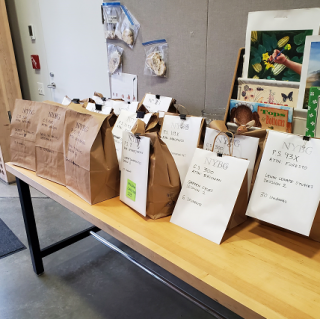
Material packages ready to be delivered to partnership schools from the Edible Academy
Exploration of the world of plants featured throughout the biomes of the iconic Enid A. Haupt Conservatory continues at the GreenSchool in partnership with District 75’s Plant-Learn-Grow. This program supports D75 teachers in building and sustaining edible gardens. D75 provides citywide educational, vocational, and behavior support programs for students who learn with an array of cognitive, emotional, and sensory impairments and abilities. Partnered since 2016, the Garden provides their teachers with content knowledge and practical experiences on Garden grounds through professional learning sessions. In return, D75 provides Garden Educators with an understanding about their whole person-centered approach to teaching, the learning styles of their students, and strategies to design learning experiences that allow their students to succeed at each Children’s Education program location.
Though nothing can replicate the magical sense of physically being inside a desert recreated inside a glasshouse, many of the structures for learning how plants grow and survive there translate to a virtual platform. Through shared-phenomena experiences like watching a time-lapse video of a corpse flower in bloom inside the palm dome, or observing brilliant visuals of diverse forms of plant life, students have opportunities to respond like scientists. They record information about what they notice by writing and drawing, using assistive technology and non-verbal cues, or think out loud to share their ideas and make sense of what they wonder about. Educators use consistent and repetitive language, extra wait time for students to process information, and establish activity routines to encourage students to feel like they are together, doing the important work of discovering plants from around the world
During out-of-school time programs offered by GreenSchool, Bronx high school students enrolled in Gaining Early Awareness for Undergraduate Programs (GEAR UP), a college readiness program at the Bronx Institute at Lehman College. With COVID-19 having revealed the inequities of social and environmental justice at the core of their curriculum, students were tasked with identifying a specific waste management problem they observed in their community, and creating an action plan based on a vision of themselves as a steward with a local greening organization—such as a botanical garden, block association, community garden, school, or park. Using Google Classroom and Zoom, Garden educators guide students through rich online tools for interactive mapping and data gathering of science phenomena on both regional and global scales. From analyzing Air Quality Index maps to comparing the Bronx to surrounding boroughs and beyond, to participating in a live online street tree stewardship webinar hosted by the New York City Parks Department, students make connections to the pollution issues they care about and build social capital by networking with professionals in the field to propose solutions.
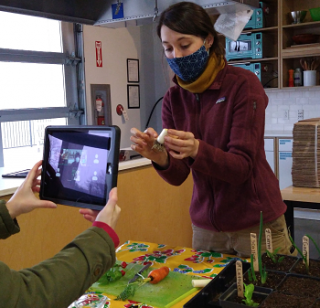
During GEAR UP’s “Waste Management through Environmental Stewardship” workshop series, educators engage with students by demonstrating how to make a “re-grow garden” with leek stem and roots
The Everett Children’s Adventure Garden (ECAG) has been offering lessons for students in pre-kindergarten through fifth grade, including the aforementioned District 75 partner schools.
Garden educators have used a “zoom out, zoom in strategy” that starts the lesson with a live nature experience in the outdoor landscape, then examines one particular object under a microscope. Students are given the opportunity to investigate using a digital microscope, and tap into their artistic skills with song and story activities related to a local phenomenon. Physical movement is also incorporated into the lessons to break up long periods of sitting in front of a screen, to relate movement to science vocabulary and of course to have fun!
The Explainer Program at ECAG has provided virtual internships for high school students.
Students, referred to as Explainers, learn about nature and plant science in order to become environmental educators for children and families, traditionally by exploring the Garden, but also by using new digital tools. Explainers meet weekly to learn about teaching practices, participate in team building, and develop their own program curriculum. They become more self-confident through public speaking and gain a deeper knowledge of a topic such as plant science or ecology. Advanced, Master, and Senior Explainers are also participating in virtual internships and have been responsible for their own “Nature Notebook,” where they independently practice observation techniques in their respective neighborhoods. Garden educators recognize that interns are unable to meet in-person with peers, so community building has been a key element to the success of the program. One intern shared that “getting to know the other interns” has been the most important aspect.
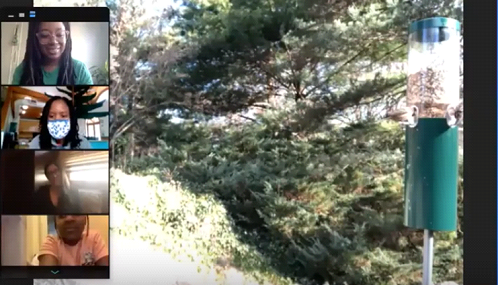
Educators from ECAG use a live bird cam to examine bird behavior
The Teacher Professional Learning team continues to work with teachers in exploring science content and teaching practices. In working with Urban Advantage, a city initiative that brings together the resources of New York City’s cultural institutions, the NYC Department of Education, and public schools to improve instruction in middle school and elementary science, Garden educators have supported teachers in engaging with science content online, assisted in learning new online tools, and have also encouraged teachers to think about the science concepts that are happening around them in their homes and neighborhoods. Teachers learn in blended experiences that include individual and collaborative self-paced assignments, such as analyzing secondary data, nature journaling, model making and discussion forums, as well as live online meetings. Garden educators have been intentional in using online tools to engage teachers in science content, while modeling strategies for them to use with their own students.
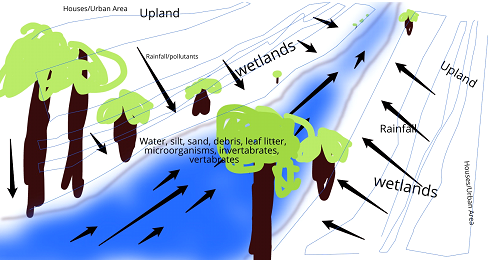
Teachers in the Urban Advantage program create models to understand the Bronx River and watershed ecosystems
Meetings among Children’s Education staff members have provided an opportunity to share successful remote teaching practices, challenges, and even tips on how to use specific online tools to boost student engagement. Some common themes that have emerged are:
- Have fun with your students!
- Have a lesson plan, but stay flexible
- Engage in community building
- Keep the technical aspect of the lessons simple
The Children’s Education team will continue to inspire and engage our virtual audiences. We’re looking forward to returning to educating even more classes of curious and motivated learners when we are once again able to have programming on Garden grounds. Until then, it is important to celebrate all of the amazing work our educators have done to create meaningful experiences for our virtual learners, and highlight the organizational partnerships with the Garden.
SUBSCRIBE
Enter your email address to subscribe to this blog and receive updates on new posts.
